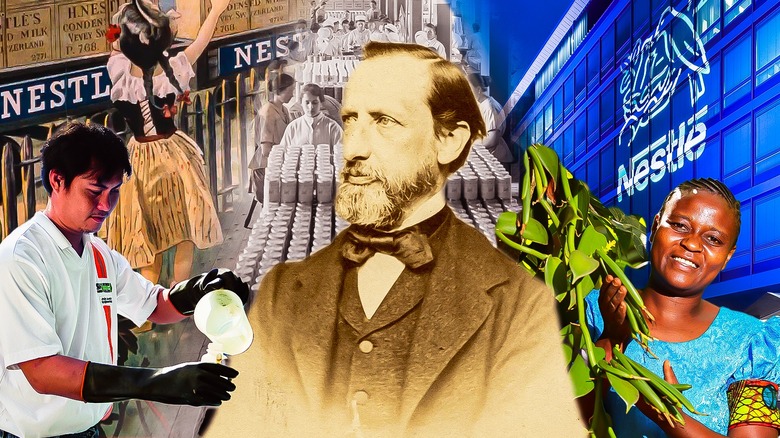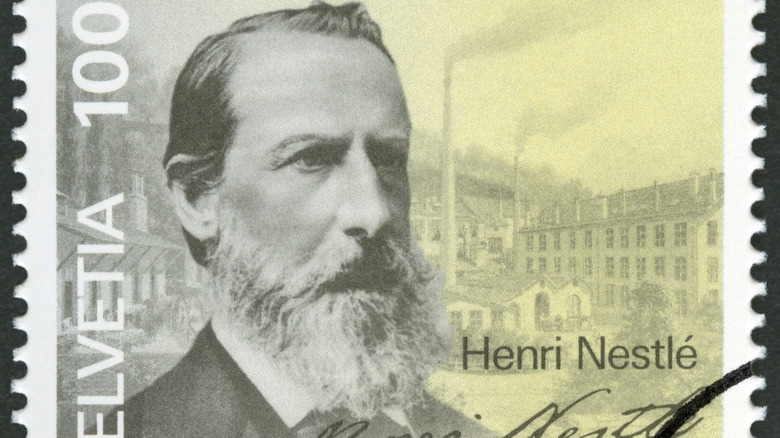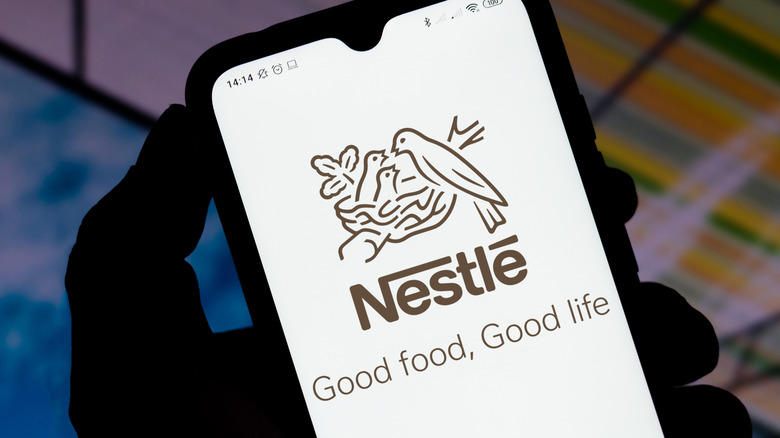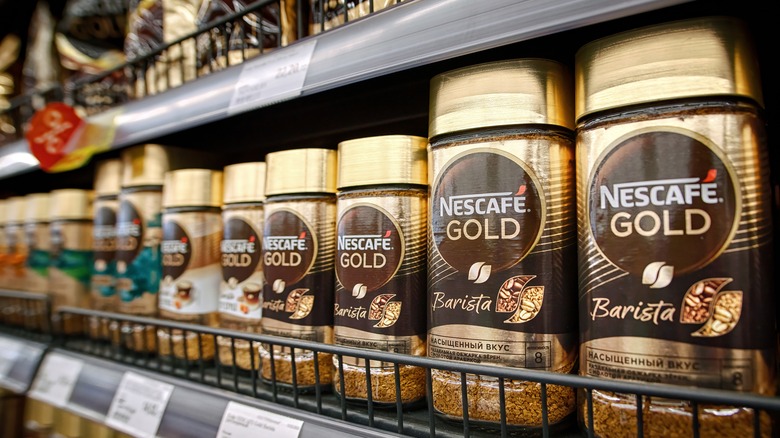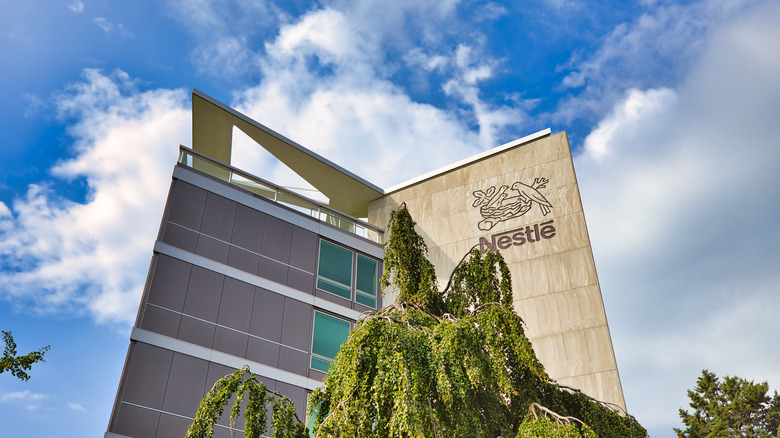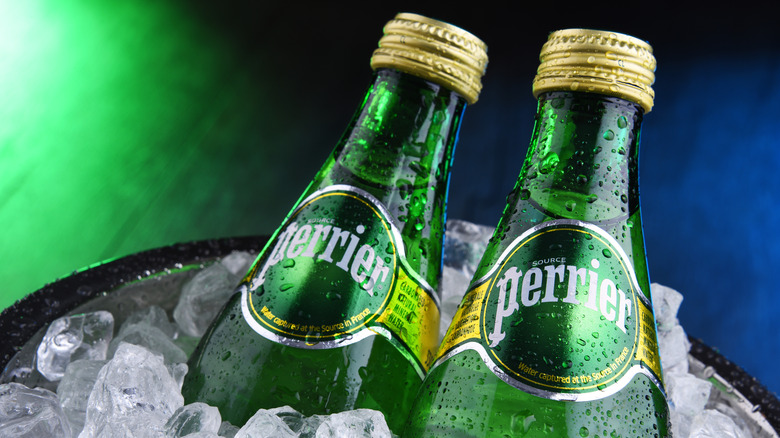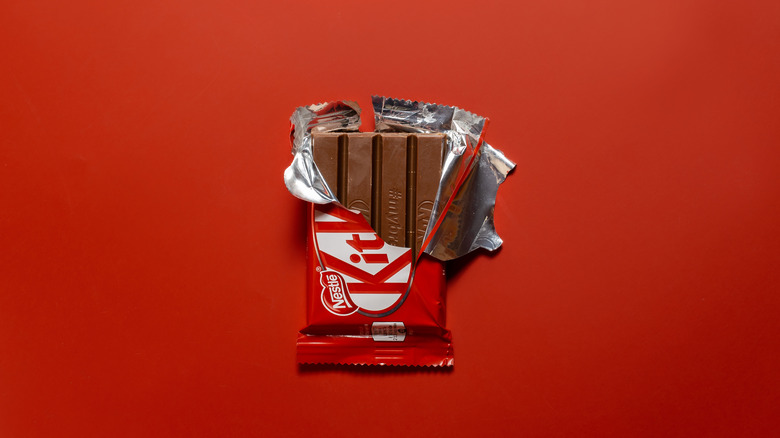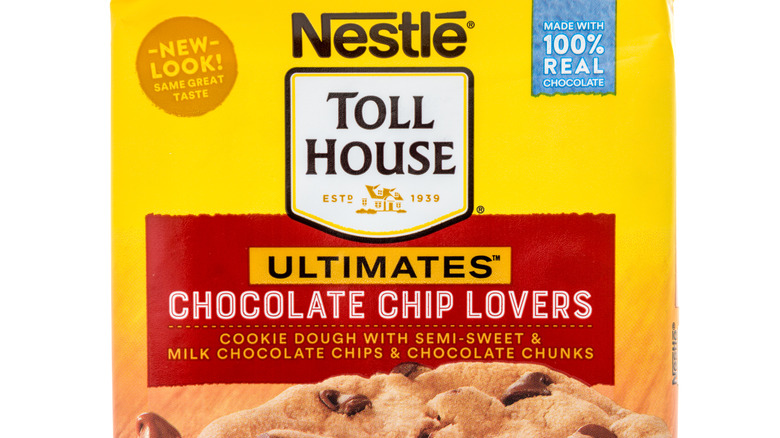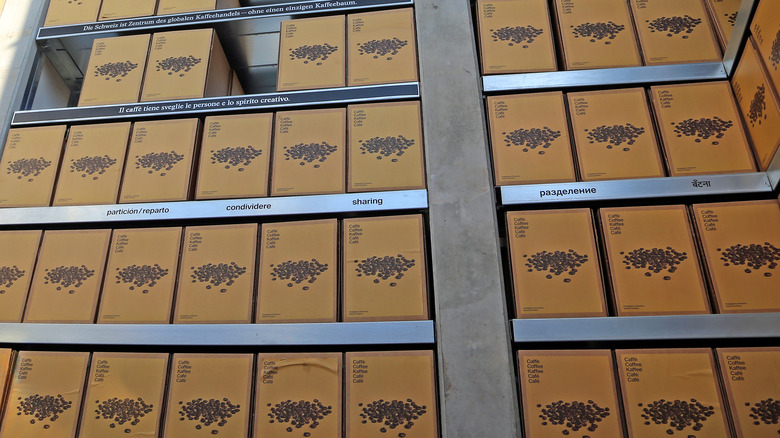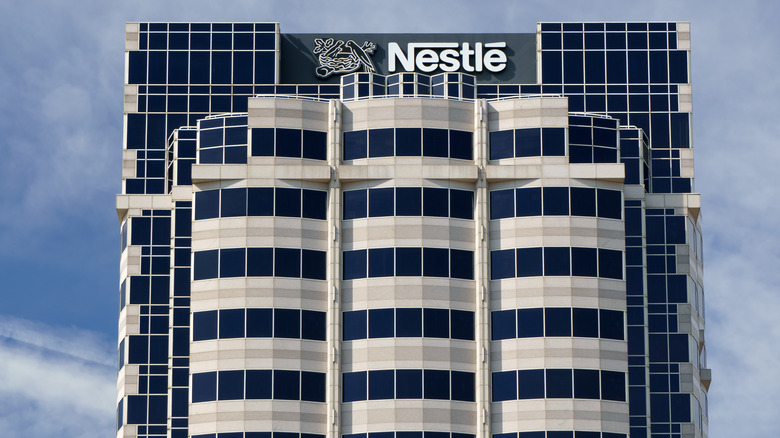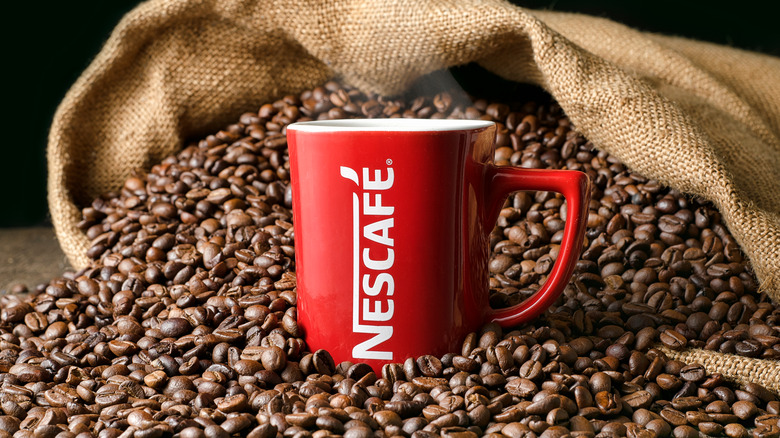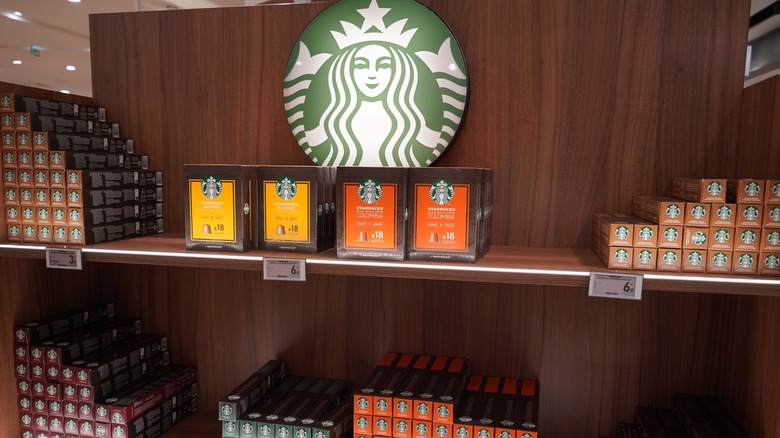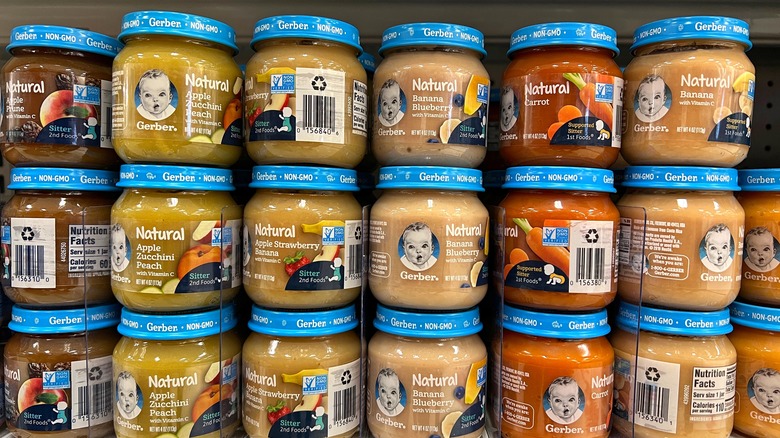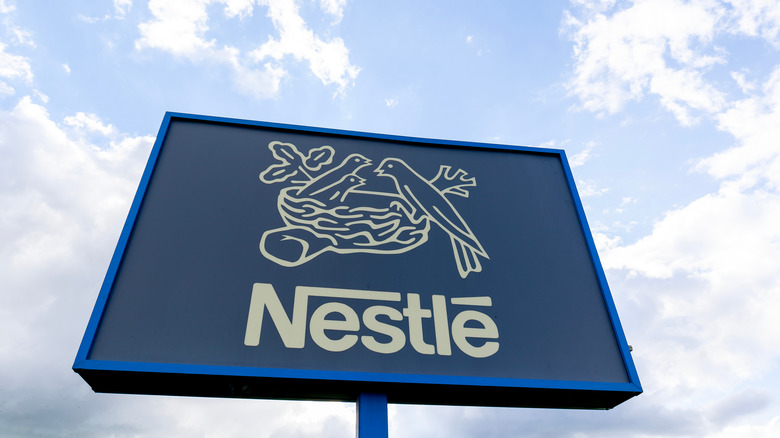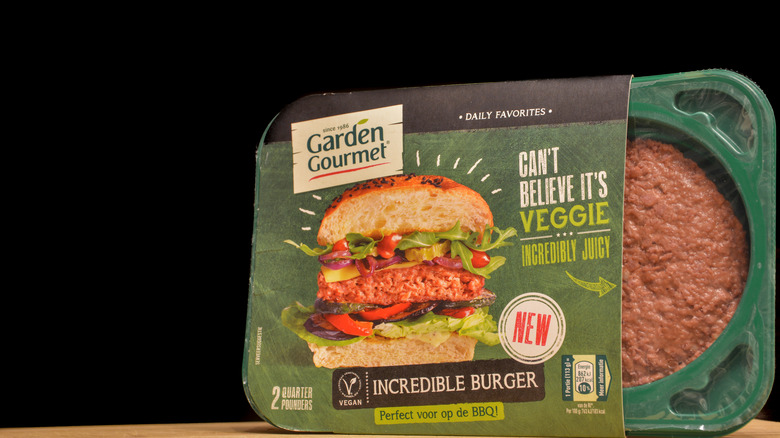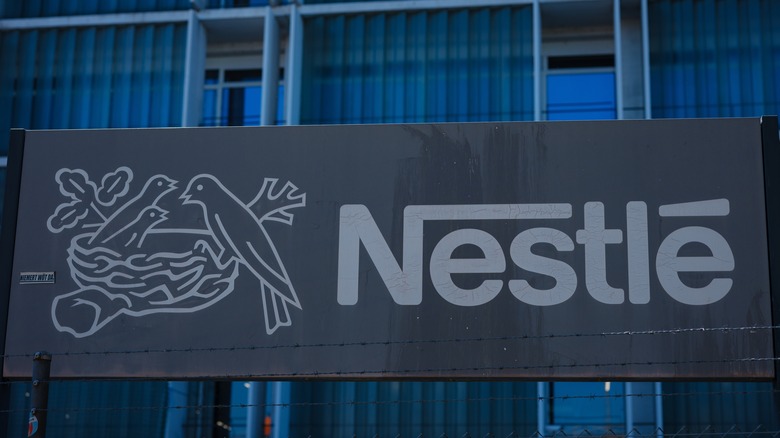15 Facts You Need To Know About Nestlé
It's probably hard to find anyone in the U.S. or Europe who has never tried a Nestlé product. The company's headquarters are in Vevey, Switzerland, but Nestlé is a multinational company specializing in various consumer markets, from the initial baby formula to all types of food, pet care products, bottled water, and coffee.
Recent inflation affected the company's operations, so in 2022, Nestlé increased prices and eliminated some of its products. On average, the company's costs increased by 10.1% in 2022, notes the Wall Street Journal, and the tendency is expected to remain the same throughout 2023. However, price increases are mostly applied to those products affected by inflation. An interesting consequence of this policy was that Nestlé's increased prices resulted in sales growth for some products. Among these were pet care products, coffee brands, and baby food. So, there's no doubt that, besides being a force as a company, Nestlé can also navigate tricky financial situations. But what led this company to become such a giant in the consumer goods market? Here is everything you need to know about Nestlé.
Nestlé was founded by Henri Nestlé, a German chemist
Henri Nestlé was a Swiss entrepreneur and the founder of Nestlé. After Henri Nestlé completed his education in pharmacy, he moved to Switzerland in 1839 and started working as an assistant in a pharmacy in Vevey. Later, he established his laboratory, where he experimented with various food and beverage products, which led him to create the infant food formula that would become the foundation of Nestlé.
In 1867, Henri Nestlé introduced his groundbreaking product; the first infant food formula made from cow's milk, wheat flour, and sugar. The recipe was a lifesaver for many mothers unable to breastfeed their babies, and it quickly became popular in Switzerland and beyond. In 1868, Henri Nestlé partnered with a local businessman named Charles Page to form the Nestlé Company, which would become one of the world's largest food and beverage companies. Nestlé continued to innovate, developing new products such as condensed milk, which became a staple in households worldwide.
The company's name and logo are derived from Henri Nestlé's last name
Nestlé's logo is an instantly recognizable and iconic image associated with the brand for over a century. The logo features the company's name in blue letters with a stylized bird's nest above it, containing three baby birds with open beaks waiting to be fed. The logo is closely linked to the company's founder, Henri Nestlé. The Nestlé family coat of arms, which featured a bird's nest, inspired the design of the logo. The nest with three baby birds symbolizes the fundamental values at the core of the company's philosophy.
The logo's design has undergone several changes, but the bird's nest has remained a constant feature. The current version of the logo was introduced in 1995, and the company has continued to use it ever since. With its rich history, there's no doubt that the logo has helped build Nestlé's reputation as one of the world's leading food and beverage companies. In addition, its connection to the founder's name and family coat of arms has made it a recognizable image for over a century.
Nestlé owns more than 2,000 brands
Nestlé is a huge multinational company with over 2,000 brands worldwide, notes the World Intellectual Property Organization. The company operates in various domains, including baby food, bottled water, coffee, dairy, pet care, and confectionery. Nestlé's brands are popular and widely recognized across the globe, and the company has built a reputation for quality and innovation.
Some of Nestlé's most popular brands include Nescafé, KitKat, Smarties, Nespresso, and Gerber. In addition, however, the company has a significant presence in regional and lesser-known brands. For example, one of the company's lesser-known brands is Crosse & Blackwell, a U.K.-based brand specializing in condiments and sauces. The brand's product line includes chutneys, pickles, and soups. Similarly, Nestlé also owns Herta, a European brand that offers a range of meat products, including sausages, ham, and bacon.
Nestlé's presence also extends to the health and wellness sector, with brands such as Boost and Carnation. Boost is a health drink fortified with nutrients and marketed as a nutritional supplement. On the other hand, Carnation is a brand offering a range of dairy products, including milk, creamers, and evaporated milk. In the pet care sector, Nestlé owns several brands, including Purina, which offers a range of pet food products for cats and dogs. The company also owns the lesser-known brand Tails.com, a U.K.-based online subscription service offering customized dog food.
The company is present in 188 countries and has 275,000 employees
A worldwide company, Nestlé operates in 188 countries. With a workforce of over 275,000 employees, Nestlé is one of the largest employers in the world. The company exists in many countries, including the United States, China, Brazil, India, and Mexico.
The company's presence in so many countries means that Nestlé has to provide employee perks that cater to each location's unique needs and preferences. For example, employees in the United States may have access to health insurance and retirement plans, while employees in China may receive supplementary commercial insurance and transportation support. In addition to these benefits, Nestlé provides employees with various training and development opportunities to help them grow and advance in their careers.
Nestlé operates in various venues, including factories, research and development centers, and retail outlets. The company's factories produce different food and beverage products, from instant coffee and chocolate to pet food. Nestlé's research and development centers are responsible for creating new products and improving existing ones. Finally, Nestlé's retail outlets, such as Nespresso stores and KitKat Chocolatory shops, provide customers with a unique and personalized shopping experience.
Nestlé is one of the world's largest bottled water companies
Nestlé is one of the world's largest bottled water companies, with a significant presence in almost every corner of the world. It owns many popular bottled water brands, such as Perrier, S.Pellegrino, Nestlé Pure Life, and Poland Spring. In addition to these well-known brands, Nestlé owns several local bottled water brands that are popular in their regions. For example, in Canada, Nestlé owns the famous bottled water brand, Arrowhead, sourced from a natural spring in Ontario. Another local brand owned by Nestlé is Aberfoyle Springs, which is sourced from a natural spring in Ontario and is popular in the Canadian market.
Nestlé's bottled water division has been controversial due to its perceived environmental impact. Many critics argue that bottled water production contributes to plastic waste and depletes local water sources, adversely affecting the environment and local communities. Nestlé has taken steps to address these concerns by investing in sustainable packaging and water stewardship programs, but the company still faces criticism from environmental groups and activists. According to Reuters, Greenpeace members called for more environmental protection acts from Nestlé on several occasions.
Nestlé was the first company to introduce milk chocolate
In 1875, a Swiss chemist named Daniel Peter invented milk chocolate, forever changing the landscape of the chocolate industry. This innovation resulted from Peter's desire to create a chocolate that would be more palatable and nutritious than the dark chocolate that was popular at the time. Nestlé's contribution to his invention was crucial, as the company supplied the condensed milk Peter used to develop the chocolate. The invention was a resounding success, quickly becoming a popular treat throughout Europe and beyond.
Nestlé started selling milk chocolate in 1904 after purchasing part of Peter's business. The milk chocolate was an immediate hit, with its smooth texture and sweet, creamy flavor. It was the first chocolate to use milk as a key ingredient, and it quickly became a favorite among consumers. As a result, Nestlé's chocolate business expanded rapidly, and the company began to produce a range of other chocolate products. Today, Nestlé is one of the largest producers of chocolate in the world, with a range of well-known brands under its umbrella. These include KitKat, Milkybar, and Aero, among others.
Nestlé's ads left their mark on chocolate chip cookies recipes
During World War II, Nestlé ran a series of advertisements promoting its chocolate bars to American soldiers overseas. The ads featured recipes for cookies made with Nestlé chocolate and included a recipe for what is now known as the Toll House chocolate chip cookie.
The recipe, created by Ruth Wakefield, owner of the Toll House Inn in Massachusetts, called for Nestlé chocolate chopped into small pieces, which would melt into the cookie dough as it baked. The cookies quickly became popular with soldiers and civilians alike. In addition, Nestlé soon began packaging its chocolate in convenient chip form, making it easier for home bakers to replicate Wakefield's recipe.
Today, Nestlé Toll House cookie dough is a staple in many American homes, and the recipe has become a beloved classic. However, the influence of Nestlé's wartime advertising can still be seen in the recipe, which calls for Nestlé chocolate chips or chunks, and the Toll House name has become synonymous with chocolate chip cookies.
The company invests a lot in sustainability
Nestlé has invested significantly in sustainability and fighting climate change (via CNBC). For example, the company has revamped its coffee sustainability plan to address the challenges of climate change. In addition, Nestlé has set ambitious targets to reduce its carbon footprint and increase the use of renewable energy sources in its operations. As part of its sustainability efforts, Nestlé has committed to achieving net-zero greenhouse gas emissions by 2050. The company also invests in renewable energy sources such as wind, solar, and hydropower to reduce its carbon footprint.
Nestlé has also launched several initiatives to support sustainable agriculture and reduce deforestation. The company is working with farmers to improve their farming practices and increase their productivity while reducing the environmental impact of their operations. Moreover, Nestlé has also been focusing on reducing waste in its operations and promoting recycling. The company has set a target to achieve zero waste in its operations by 2025 and has been implementing several initiatives to achieve this goal.
Nestlé has a nutrition research and development organization
Nestlé is recognized for its commitment to innovation in nutrition and its substantial investment in research and development (R&D) activities. Nestlé has a dedicated nutrition, health, and wellness R&D organization that works on a wide range of projects, from developing healthier products to exploring the role of nutrition in preventing and managing chronic diseases. The R&D organization of Nestlé is one of the largest of its kind globally, with over 4,000 scientists, engineers, and other specialists working in research and development centers worldwide.
Fundamental research involves studying nutrition's underlying biology and physiology, while applied research focuses on developing and validating new ingredients and technologies. Finally, product development consists in creating and improving products that meet consumer needs for taste, convenience, and affordability while also being healthy and nutritious. Nestlé has also launched an R&D accelerator in Switzerland, bringing together startups, universities, and other partners to collaborate on developing innovative food and nutrition products. The accelerator will provide startups access to Nestlé's expertise, resources, and global network of suppliers and distributors, helping them accelerate their product development and commercialization.
Nescafé is one of the world's leading coffee brands
Nescafé is one of the world's most recognizable and trusted coffee brands. It is owned by Nestlé and was first introduced in Switzerland in 1938. Since then, it has become one of the world's leading coffee brands, loved and consumed by millions of people across the globe.
Nescafé offers a wide range of products, including instant coffee, ground coffee, and coffee capsules, making it easy for coffee lovers to choose their preferred brewing method. Nescafé's instant coffee is one of its most popular products and is available in many varieties, such as Gold Blend, Original, and Azera. These instant coffee products are designed to be quick and easy to prepare, and they offer the advantage of quickly brewed, quality coffee. In addition to its instant coffee, Nescafé offers ground coffee, such as Nescafé Classic, perfect for traditional coffee brewing methods like a French press or drip coffee maker. Nescafé's coffee capsules, including Dolce Gusto and Nespresso-compatible capsules, are also famous and offer a convenient and easy way to enjoy coffee at home.
The company partners with Starbucks
In 2018, Nestlé and Starbucks announced a partnership to revolutionize the coffee industry. Nestlé would gain the rights to market, sell, and distribute Starbucks' coffee and tea products globally, excluding Starbucks' cafes. This partnership allowed Nestlé to expand its presence in the coffee market and offer customers various coffee and tea products in their homes, offices, and on the go.
One of the significant products to come out of this partnership is the Starbucks Ready-to-Drink (RTD) coffee range. This range includes a variety of flavors, including cold brew, espresso, and Frappuccino, and is available in supermarkets, convenience stores, and from online retailers worldwide. The RTD coffee range offers customers the possibility of having their favorite Starbucks coffee on the go without visiting a Starbucks café. Other products are the Nespresso and Nescafe Dolce Gusto capsules that feature Starbucks coffee blends. In addition, these capsules are compatible with Nestlé's home coffee machines, allowing customers to make their Starbucks coffee at home.
This partnership has also allowed Nestlé to expand its sustainable coffee sourcing program, Nespresso AAA Sustainable Quality Program. Also, Starbucks has pledged to purchase coffee from the program, which helps smallholder farmers grow high-quality coffee while protecting the environment and improving their livelihoods.
Nestlé owns Gerber, a leading baby food brand
Gerber is a well-known brand that produces baby food and has been a trusted infant nutrition name for over 90 years. The company was founded in 1927 by Daniel Frank Gerber and Dorothy Gerber and has since become a household name in the United States and worldwide. Gerber offers many products, including baby foods, snacks, and toddler meals.
One of the notable aspects of Gerber is that Nestlé now owns it. Nestlé acquired Gerber in 2007 for $5.5 billion, one of the most significant acquisitions in the baby food industry. Gerber offers a variety of products that cater to the specific needs of infants at different stages of their development. In addition to their traditional baby food jars, Gerber offers innovative products such as pouches and organic options. The company has also expanded its product line to include snacks and meals for toddlers so that its products can address the needs of a larger number of parents.
Nestlé has a program aimed at helping young people find employment
To assist young people in finding employment opportunities, Nestlé has launched a youth employment initiative. The Nestlé Needs YOUth initiative aims to provide opportunities for over 300,000 young people to access training and jobs by 2025. The program focuses on working with local and national organizations to create new opportunities for young people, including vocational training, apprenticeships, internships, and other types of work experience.
The initiative is a response to the high levels of youth unemployment across Europe, which the COVID-19 pandemic has exacerbated. Nestlé hopes that by working with young people and providing them with the skills and experience they need to enter the workforce, they will be able to contribute to the region's economic recovery positively. The company has committed to investing €2 billion in the program over the next few years to support the initiative. The funds will create new opportunities for young people across Europe, including in regions where unemployment is exceptionally high.
The company promotes plant-based eating
Nestlé has recently expanded its plant-based offerings to include innovative products such as vegan tuna, sausage, and filet pieces. These products are part of Nestlé's plant-based food brand, Garden Gourmet. The brand was launched in 2019, and since then it has become increasingly popular among consumers looking for meat-free alternatives. In addition, Nestlé has invested heavily in plant-based food products to tap into the growing demand for vegan and vegetarian foods.
The best-known products of the brand are vegan tuna and vegan sausage. The vegan tuna, called Vuna, is made from pea protein, wheat gluten, and flavorings, and has a flaky texture similar to canned tuna. The vegan sausage is called Sensational sausage and contains soy protein, vegetable oil, apple fiber, and flavorings (garlic, coriander, nutmeg, marjoram, and pepper). It can be cooked as a bratwurst and served in all kinds of dishes. These innovative plant-based food products are part of Nestlé's strategy to offer a wide range of options to consumers looking for plant-based alternatives to meat and dairy products.
Nestlé paid $14.6 million for its actions during Holocaust
In 2000, Nestlé agreed to pay $14.6 million to Jewish organizations and Holocaust survivors to settle a lawsuit regarding its actions during the Holocaust. The lawsuit alleged that some companies in the Nestlé group used forced labor during the Nazi regime.
The payment meant making a contribution to the Swiss Banks Settlement, which was set up between Credit Suisse and UBS AG to compensate Holocaust survivors and their families. Previously, Nestlé denied responsibility for the actions of its predecessor company, but the settlement was seen as an acknowledgment of its historical ties to the Holocaust. The company also pledged to continue its efforts to identify and compensate Holocaust victims and their families. Jewish organizations praised the settlement as a positive step towards acknowledging the suffering of Holocaust victims and their families. Still, some critics argued that the payment was insufficient to fully address the harm Nestlé's actions did during the Holocaust.
Static Media owns and operates Tasting Table and Mashed.
